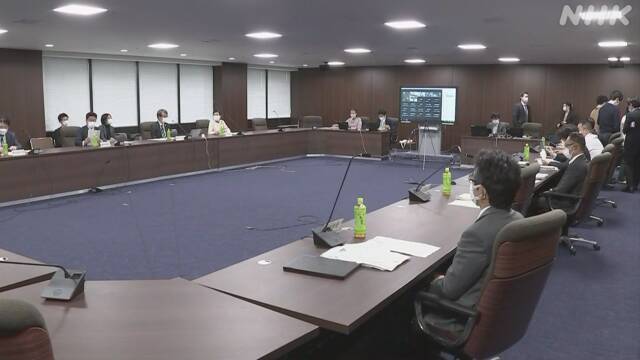An expert meeting of the Ministry of Health, Labor and Welfare was held to advise on measures against the new coronavirus, and while the number of new infections has turned to a downward trend, the number of deaths and the number of cases in which emergency transportation is difficult continue to reach record highs. He pointed out the need for continued caution.
It is necessary to strengthen and prioritize the system for providing appropriate medical care to people with a high risk of becoming seriously ill, such as the elderly, and to continue infection control.
According to the expert meeting, the current infection situation has turned to a declining trend nationwide, and although there are regional differences and uncertainties in the future, it is expected to remain flat or decrease nationwide.
However, by age group, the rate of decline is small for those in their 60s and above, and there is an increase in some areas.
The number of people who died continues to exceed a record high, and there are many outbreaks at elderly care facilities and medical institutions, and among the infected, the proportion of elderly people in their 80s and above is the seventh wave last summer. He pointed out that the trend has continued to increase since the time of , and that continued caution is necessary.
In many areas, the bed occupancy rate exceeds 50% and exceeds 70% in some areas, and the number of cases in which emergency transportation is difficult has passed the peak of the 7th wave and continues to increase. I think you need to be careful.
In addition, the proportion of the Omicron strain "BQ.1" lineage, which is said to be more susceptible to evading immunity, is increasing in Japan, and mutated viruses such as "XBB.1.5", which was reported mainly in the United States and was also detected in Japan. We need to continue to monitor trends.
In addition, seasonal influenza, which has entered the epidemic season nationwide, is expected to continue to increase in the future, and it is necessary to pay attention to the simultaneous epidemic of the new coronavirus and influenza.
The expert meeting pointed out that it is necessary to strengthen and prioritize the medical system to provide appropriate medical care to the elderly and those at high risk of severe illness, and called for vaccination against the Omicron strain. We are requesting that you prepare an antigen test kit that you can test yourself and prepare for infection.
He also called for thorough basic infection control measures such as eating and drinking with as few people as possible, wearing a mask except when eating and drinking, thoroughly ventilating, and refraining from going out if you have symptoms.
Number of new infections nationwide 0.75 times the previous week
According to the materials presented at the Ministry of Health, Labor and Welfare's expert meeting, the number of new infections in the week until the 16th was 0.75 times higher than the previous week nationwide, a sharp turnaround from last week, and all The number of infected people has decreased in the prefectures from the previous week.
Among the three prefectures in the Tokyo metropolitan area,
▽ Tokyo decreased by 0.69 times,
▽ Kanagawa Prefecture decreased by 0.77 times,
▽ Saitama Prefecture decreased by 0.71 times, and
▽ Chiba Prefecture decreased by 0.75 times.
In the Kansai region, all prefectures are up, with
Osaka at 0.74,
Hyogo at 0.77,
Kyoto at 0.79, and
Tokai at
0.83 in Aichi and Mie and
Gifu at 0.76. week.
The number of infected people per 100,000 people in the last week was
▽Miyazaki Prefecture, which is the highest in Japan with 1361.57 people,
followed by
▽Saga Prefecture with 1200.83 people,
▽Tottori Prefecture with 1184.84 people,
▽Kagoshima Prefecture with 1122.36 people,
▽Kumamoto Prefecture .
There are more than 1000 people in 12 prefectures, such as 1112.98 people, ▽
514.90 people in Tokyo,
▽ 673.07 people in Osaka Prefecture,
and
▽ 712.39 people nationwide.

